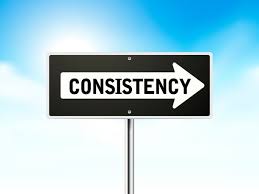In the dynamic landscape of Leadership, Emotional Intelligence (EI) has emerged as a key factor in driving success, especially in roles that demand effective communication, decision-making, and team management. Emotional Intelligence refers to the ability to recognize, understand, and manage one’s own emotions, as well as the ability to perceive and influence the emotions of others.
In scenarios involving high-stake negotiations with a potential client, your high EI quotient can help navigate the complexities of the negotiation table, understanding the client’s emotions, adapting communication styles, and effectively managing your responses. This can lead to improved rapport, increased trust, and a higher likelihood of closing the deal successfully.
Different Aspects of Emotional Intelligence (EI):
One of the well-known frameworks for Emotional Intelligence is the “The Ability Model of Emotional Intelligence” proposed by Peter Salovey and John Mayer . Daniel Goleman, a renowned psychologist and journalist, later popularized their work in his book, “Emotional Intelligence: Why It Can Matter More Than IQ“. The Salovey and Mayer model identifies four critical aspects of emotional intelligence:
- Perceiving Emotions: It involves the ability to accurately perceive and recognize emotions in oneself and others. This includes being attuned to facial expressions, body language, and vocal cues that convey emotional information. People with active perceiving skills can quickly and accurately identify the emotions of those around them, which is crucial for effective interpersonal communication.
- Facilitating Thought: It is about using emotions to enhance cognitive processes. Emotions can serve as a source of information and energy for thinking and problem-solving. Use positive emotions to enhance creativity or consider negative emotions as a signal that additional cognitive effort or attention is needed.
- Understanding Emotions: It involves comprehending the complexities of emotions, including the ability to recognize blends of emotions and understand the transitions between them. Individuals with a better understanding of their emotions are adept at interpreting the causes and consequences of various emotional states, both in themselves and in others.
- Managing Emotions: Effective emotion management includes being able to handle stress, control impulses, and maintain a positive outlook. It also involves using emotions in a constructive way to facilitate personal and social goals.
These four aspects are interconnected and collectively contribute to an individual’s overall emotional intelligence. People with a high level of emotional intelligence are often more successful in navigating social situations and managing interpersonal relationships. These aspects play a crucial role in leadership, influencing decision-making, nurturing relationships, and overall team dynamics. This model provides an understanding of the various skills and competencies that constitute EI, making it a valuable tool for personal and professional development.
Recommendations for Sales Leaders :
- Invest in EI Training: Recognize that emotional intelligence is a skill that can be developed and refined. Consider incorporating EI training programs into your sales leadership development initiatives. These programs can provide valuable insights and practical strategies for enhancing emotional intelligence among your team members.
- Promote a Positive Culture: The culture within a sales team directly impacts its collective emotional intelligence. Foster a positive and supportive environment where team members feel encouraged to express their thoughts and emotions. Recognize and celebrate both individual and team successes, reinforcing the idea that emotional intelligence is a shared endeavor.
- Integrate EI Metrics into Performance Evaluation: To underscore the importance of emotional intelligence, consider incorporating relevant metrics into your performance evaluation process. This could include assessing how well team members navigate client relationships, handle challenges, and collaborate with colleagues. By tying EI to performance metrics, leaders send a clear message about its significance.
Final Thoughts:
Using EI, leaders can cultivate a team culture that thrives on open communication, trust, and resilience. As organizations continue to recognize the pivotal role of Emotional Intelligence in leadership, the path to success becomes not just about strategic decision-making but also about understanding and connecting with the emotions of employees, that drives individual and collective achievement. As the saying goes, “People don’t buy what you do; they buy why you do it.” In the context of sales leadership, the “why” is deeply rooted in emotional intelligence—a force that propels teams towards sustained excellence.
Explore Optimé’s Emotionally Intelligent Sales Leader program to learn more. Happy Selling!



